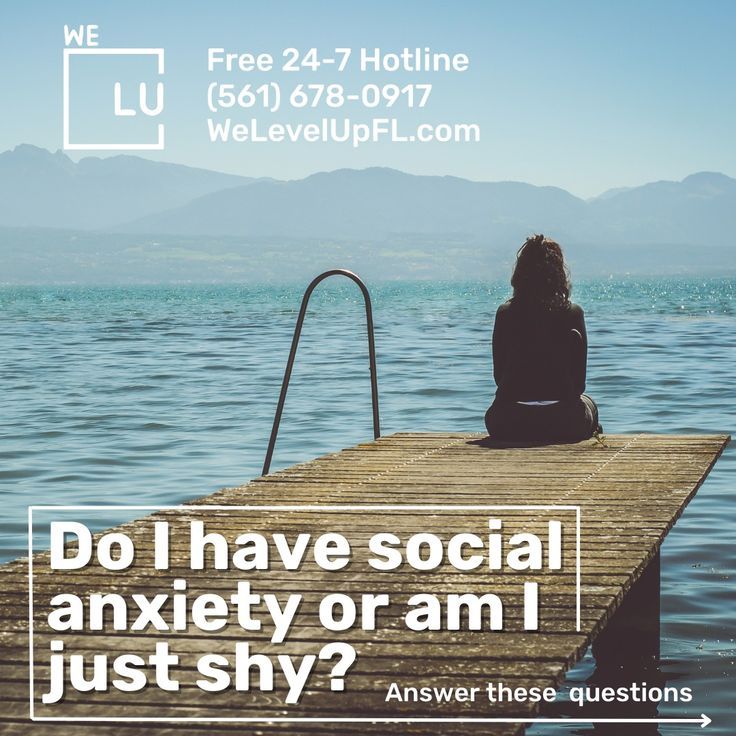High Functioning Anxiety
In a world where stress and anxiety have become familiar, a lesser-known but equally impactful form of anxiety exists—High Functioning Anxiety. Often camouflaged beneath a facade of competence and success, this silent struggle can affect anyone, regardless of their external achievements. In this comprehensive exploration, we delve into the intricacies of High Functioning Anxiety: its symptoms, underlying causes, and effective treatments. Join us as we uncover the answers to the question: What Is High Functioning Anxiety, and how can we navigate its challenges?
What Is High Functioning Anxiety?
High Functioning Anxiety is a subtype of anxiety disorder characterized by individuals who appear outwardly successful, composed, and capable while wrestling with intense anxiety internally. This internal struggle often remains hidden, making it challenging to identify. Those with High Functioning Anxiety constantly grapple with worrisome thoughts about various aspects of life, leading to overthinking and a heightened fear of not meeting their self-imposed high standards.
While they may excel in their endeavors and meet their responsibilities, the inability to relax, coupled with physical symptoms like muscle tension and sleep difficulties, takes a toll. Over time, unaddressed High Functioning Anxiety can impact mental health, underscoring the importance of seeking help from mental health professionals.
High-Functioning Anxiety Causes
High-Functioning Anxiety, like other forms of anxiety disorders, can be influenced by a combination of factors, and it’s often challenging to pinpoint a single cause. Instead, it typically arises from a complex interplay of genetic, environmental, psychological, and situational factors. Here are some key factors that may contribute to the development of High-Functioning Anxiety:
- Genetics: Family history of anxiety disorders.
- Brain Chemistry: Imbalances in neurotransmitters.
- Stressful Life Events: Chronic stress, trauma, or major life changes.
- Personality Traits: Perfectionism, excessive worrying, and a strong desire for control.
- Childhood Experiences: Adverse childhood events and family environment.
- Biological Factors: Brain structure, hormonal imbalances, or medical conditions.
- Cultural and Societal Pressure: Societal and cultural expectations.
- Lifestyle Factors: Poor sleep, nutrition, exercise, or substance use.
These factors can interact and vary among individuals, contributing to the development of High-Functioning Anxiety. Seeking professional help is essential for accurate diagnosis and effective treatment.


Skip To:
Learn More:
- Quick & Easy 3-Minute High-Functioning Anxiety Test
- Determine the Best Time of Day to Take Zoloft for Anxiety. How Long Does It Take for Zoloft to Work?
- Performance Anxiety, Causes, Symptoms, and Treatment. Male Performance Anxiety Solutions.
- OCD Medication Side Effects. Find the Best Medication for OCD Intrusive Thoughts and Anxiety.
- Depression and Anxiety Therapist Fort Lauderdale. EMDR Therapy Fort Lauderdale.
- Learn the Different Types of Anxiety. 6 Types of Anxiety Disorders. Symptoms and Medications for the Different Types of Anxiety.
- Tapping for Anxiety, Does It Help with Stress? EFT Anxiety Tapping
Get Help. Get Better. Get Your Life Back.
Searching for Accredited Dual Diagnosis Mental Health Centers Near You?
Even if therapy failed previously, or are in the middle of a difficult crisis, we stand ready to support you. Our trusted behavioral health specialists will not give up on you. When you feel ready or just want someone to speak to about counseling alternatives to change your life call us. Even if we cannot assist you, we will lead you to wherever you can get support. There is no obligation. Call our hotline today.
FREE 24/7 Dual Diagnosis Mental Health Services HotlineAnxiety Facts
Anxiety Overview
Your brain and behavior are both impacted by the condition of addiction. Substance addiction makes it unable to resist the impulse to use the drug, regardless of how harmful it may be. The sooner you receive treatment for drug addiction, the better your chances are of avoiding some of the disease’s more serious side effects.
Anxiety Symptoms
Behavioral: hypervigilance, irritability, or restlessness.
Cognitive: lack of concentration, racing thoughts, or unwanted thoughts.
Whole body: fatigue or sweating.
Also common: anxiety, excessive worry, angor animi, fear, insomnia, nausea, palpitations, or trembling.
Anxiety Treatment
- Support group: A place where those pursuing the same disease or objective, such as weight loss or depression, can receive counseling and exchange experiences.
- Cognitive behavioral therapy: A conversation treatment that aims to change the negative attitudes, actions, and feelings connected to psychiatric discomfort.
- Counseling psychology: A subfield of psychology that handles issues with the self that are connected to work, school, family, and social life.
- Anger management: To reduce destructive emotional outbursts, practice mindfulness, coping skills, and trigger avoidance.
- Psychoeducation: Mental health education that also helps individuals feel supported, validated, and empowered
- Family therapy: psychological counseling that improves family communication and conflict resolution.
Anxiety Statistics
Anxiety is a common mental health condition characterized by excessive worry, fear, and apprehension. It can manifest in various forms, such as generalized anxiety disorder (GAD), panic disorder, social anxiety disorder, and specific phobias. Anxiety can significantly impact a person’s daily life, relationships, and well-being.
264 million
Anxiety disorders are among the most common mental health conditions worldwide, affecting a significant portion of the population. An estimated 264 million people globally were living with anxiety disorders in 2017.
Source: WHO
50%
Anxiety and depression often coexist. It is reported that approximately 50% of individuals diagnosed with an anxiety disorder are also diagnosed with depression at some point in their lives.
Source: ADAA
$42 billion
The economic costs associated with anxiety disorders are substantial. Anxiety disorders cost more than $42 billion annually in healthcare expenses and lost productivity in the United States.
Source: Journal of Clinical Psychiatry
High Functioning Anxiety Symptoms
High Functioning Anxiety can manifest in various ways, and its symptoms may vary from person to person. Despite outward appearances of success and capability, individuals with High Functioning Anxiety often grapple with the following symptoms:
- Excessive Worry: Constant and excessive worry about various aspects of life, such as work, relationships, health, or everyday responsibilities.
- Perfectionism: Setting impossibly high standards for themselves and fearing the consequences of not meeting these standards.
- Overthinking: Engaging in repetitive and unproductive thoughts about potential problems, negative outcomes, or past mistakes.
- Physical Symptoms: Experiencing physical manifestations of anxiety, including muscle tension, headaches, stomachaches, and fatigue.
- Difficulty Relaxing: Finding it challenging to relax and enjoy leisure time due to persistent anxious thoughts and the inability to “switch off.”
- Seeking Reassurance: Frequently seeking validation and reassurance from others to alleviate anxiety and self-doubt.
- Avoidance: Avoiding situations or responsibilities that trigger anxiety, which can hinder personal and professional growth.
- Self-Criticism: Engaging in self-criticism and negative self-talk, often fueled by perfectionism.
- Impaired Sleep: Difficulty falling or staying asleep due to racing thoughts and worry.
- Procrastination: Delaying tasks or decision-making due to the fear of making mistakes or not meeting high standards.
- Rumination: Dwelling on past events or perceived failures repeatedly replaying them in the mind.
- Restlessness: Feeling on edge, jittery, or unable to relax, even in calm situations.
- Difficulty Concentrating: Struggling to focus on tasks or maintain attention due to intrusive anxious thoughts.
- Physical Health Concerns: Excessive concern about physical health, often accompanied by frequent doctor visits or medical tests.
- Social Anxiety: Nervousness in social situations, fearing judgment or criticism from others.
- Emotional Sensitivity: Heightened emotional responses, including irritability, frustration, or tearfulness.
- Chronic Stress: Living in constant stress and tension, even when no immediate stressors exist.
It’s essential to note that individuals with High Functioning Anxiety may not exhibit all of these symptoms, and their experiences can change over time. While they may excel in their professional and personal lives, these internal struggles can take a toll on their mental and physical well-being. Seeking help from a mental health professional is essential for effectively understanding and managing High Functioning Anxiety. Therapy, medication, and lifestyle changes can be valuable tools in addressing these symptoms and improving overall quality of life.
7 Signs of High-Functioning Anxiety
- Perfectionism: Individuals with High-Functioning Anxiety often hold themselves to exceptionally high standards and fear making mistakes or falling short of expectations.
- Overthinking: They tend to dwell on problems and overanalyze situations, replaying scenarios in their minds, which can lead to heightened stress and anxiety.
- Constant Worry: A persistent and excessive worry about various aspects of life, from work and relationships to health and daily responsibilities.
- Difficulty Relaxing: They find it challenging to unwind and enjoy moments of leisure due to a constant feeling of restlessness and an inability to switch off anxious thoughts.
- Physical Symptoms: Physical manifestations of anxiety, such as muscle tension, headaches, stomachaches, and fatigue, are common but often attributed to other causes.
- Seeking Reassurance: A tendency to seek validation and reassurance from others to alleviate anxiety and self-doubt.
- High Achievers: Despite their inner struggles, individuals with High-Functioning Anxiety often excel in their professional and personal lives, maintaining an outward appearance of competence and success.


End the Emotional Pain. Get Your Life Back.
Feeling Depressed, Anxious or Struggling with Mental Health Illness? Get Safe Comfortable Mental Health Dual Diagnosis High-Quality Therapy From Counselors That Care. Begin Your Recovery Now.
Hotline (855) 940-6125High Functioning Anxiety Test

High Functioning Anxiety And Depression
High-functioning anxiety and depression often coexist, intensifying the challenges individuals face. The relentless pursuit of perfection and fear of failure associated with high-functioning anxiety can contribute to depression. Combining both conditions can create a cycle of negative thoughts and emotions, leading to feelings of worthlessness, decreased motivation, and difficulty coping with daily stressors.
Seeking professional help and engaging in self-care practices are essential for managing high-functioning anxiety and depression. Individuals can find relief and improve their mental health with the right support.
High Functioning Autism And Anxiety
High-functioning autism (HFA), or autism spectrum disorder (ASD), often coexists with anxiety. Individuals with HFA may experience challenges in social communication, rigid thinking and routines, and sensory sensitivities, all of which can contribute to heightened anxiety. Social anxiety can arise from difficulties understanding social cues and feeling judged or misunderstood.
The rigidity in thinking and reliance on routines can lead to anxiety when faced with changes or unexpected events. Additionally, sensory sensitivities can intensify anxiety due to overwhelming stimuli. Understanding and addressing individuals’ unique challenges with HFA is crucial in providing appropriate support and interventions to alleviate anxiety symptoms and promote overall well-being. Therapeutic approaches, such as cognitive-behavioral therapy (CBT) and sensory integration therapy, can effectively manage anxiety specific to HFA and improve quality of life.

High Functioning Social Anxiety
High-functioning social anxiety refers to individuals who excel in various areas of life but experience intense anxiety in social situations. They may possess intellectual abilities, perform academically or professionally, and have good verbal skills. However, they struggle with fear of judgment, self-consciousness, and worry when faced with social interactions.
The challenges of high-functioning social anxiety can be complex as individuals may feel pressure to maintain their competent image, making it harder for them to seek support. It can impact relationships and networking and contribute to feelings of isolation. Seeking professional help, such as cognitive-behavioral therapy and social skills training, is essential for managing anxiety symptoms and building confidence. Creating a supportive environment that encourages open dialogue about mental health can help individuals with high-functioning social anxiety feel understood and accepted.
In conclusion, high-functioning social anxiety affects individuals who excel in many areas but experience significant anxiety in social situations. Their fears of judgment and self-consciousness can hinder their ability to engage and connect with others. With appropriate treatment and support, individuals can manage their anxiety and improve their social interactions, fostering a more fulfilling and supportive environment.
First-class Facilities & Amenities
World-class High-Quality Mental Health Services & Behavioral Health Substance Abuse Treatment
Rehab Centers TourRenowned Mental Health Centers. Serene Private Facilities. Inpatient Rehab Programs Vary.
Mental Health Helpline (855) 940-6125Proven recovery success experience, backed by a Team w/ History of:
15+
Years of Unified Experience
100s
5-Star Reviews Across Our Centers
10K
Recovery Successes
- Comprehensive Dual-Diagnosis Treatment
- Complimentary Family & Alumni Programs
- Coaching, Recovery & Development Events
- Comfortable Onsite Medical Detox Center
How to Deal with High Functioning Anxiety
Managing High Functioning Anxiety involves a multifaceted approach aimed at addressing both the emotional and physical aspects of this condition. Seeking professional help from a therapist or psychiatrist is often the first and most crucial step, as they can provide a personalized treatment plan. Therapy, particularly cognitive-behavioral therapy (CBT) and mindfulness-based approaches, can equip individuals with the tools to identify and challenge anxious thought patterns, manage triggers, and develop healthier coping mechanisms. Medication, prescribed by a psychiatrist, may also be considered in some cases.
In addition to professional support, self-care plays a pivotal role. Prioritizing self-care involves maintaining a balanced lifestyle through regular exercise, a healthy diet, sufficient sleep, and relaxation techniques such as deep breathing and meditation. Setting realistic goals and managing time effectively helps reduce pressure and prevent overwhelm. Journaling provides a valuable outlet for tracking thoughts and emotions, while mindfulness and meditation practices foster present-moment awareness and reduce rumination.
Social support is invaluable, as opening up to trusted friends or family members can offer emotional relief and fresh perspectives. Addressing work-related stress may require discussions with supervisors or HR departments to make necessary accommodations. Lifestyle adjustments such as limiting caffeine and alcohol intake can mitigate anxiety triggers.
How to Support Someone with High Functioning Anxiety
- Educate Yourself: Learn about High Functioning Anxiety and its symptoms.
- Listen Actively: Create a safe space to share their feelings and thoughts.
- Be Empathetic: Validate their experiences and emotions.
- Offer Encouragement: Praise their accomplishments and encourage professional help if needed.
- Assist with Practical Tasks: Help with everyday responsibilities when they’re overwhelmed.
- Encourage Self-Care: Remind them to prioritize self-care and relaxation.
- Be Patient: Understand and respect their boundaries and mood changes.
- Offer to Accompany Them: Provide support during therapy sessions or appointments.
- Stay Informed: Keep updated on their treatment progress and plan.
- Seek Support for Yourself: Don’t hesitate to seek support for your own well-being.
World-class, Accredited, 5-Star Reviewed, Effective Mental Health Dual Diagnosis Programs. Complete Integrated Inpatient Rehab with Free Post Discharge Therapy Planning.
CALL (855) 940-6125End the Emotional Pain Rollercoaster. Gain Stability & Happiness Through Recovery Treatment. Start Mental Health Counseling Today. Get Free No-obligation Guidance by Behaviroal Health Specialists Who Understand Mental Health Recovery.

High Functioning Anxiety Treatment
The treatment for high-functioning anxiety typically involves a combination of therapy, lifestyle changes, and, in some cases, medication. Here are some common approaches to treating high-functioning anxiety:
- Therapy: Cognitive-behavioral therapy (CBT) is often the primary therapeutic approach for high-functioning anxiety. CBT helps individuals identify and challenge negative thought patterns and beliefs contributing to anxiety. It focuses on developing healthy coping strategies, improving problem-solving skills, and gradually exposing individuals to feared situations to reduce avoidance behaviors.
- Mindfulness and relaxation techniques: Learning mindfulness and relaxation techniques, such as deep breathing exercises, meditation, and progressive muscle relaxation, can help manage anxiety symptoms. These techniques promote relaxation and help individuals become more aware of their thoughts and emotions, allowing them to respond to anxiety more effectively.
- Lifestyle changes: Making changes that support overall well-being can positively impact managing high-functioning anxiety. This may include adopting a regular exercise routine, maintaining a balanced diet, getting enough sleep, and reducing the consumption of caffeine and alcohol, which can exacerbate anxiety symptoms.
- Stress management: Developing effective techniques is crucial for individuals with high-functioning anxiety. This may involve setting boundaries, practicing time management, prioritizing self-care activities, and engaging in hobbies or activities that promote relaxation and stress reduction.
- Support network: Building a solid network can provide valuable emotional support and understanding. Seeking support from friends, family, or support groups can offer a sense of validation and provide opportunities to share experiences with others facing similar challenges.
- Medication: In some cases, medication may be prescribed to help manage symptoms of high-functioning anxiety. Antidepressants, anti-anxiety medications, or a combination of both may be used to alleviate anxiety symptoms. It’s essential to consult a healthcare professional to determine the appropriate medication and dosage for individual needs.
Treatment for high-functioning anxiety should be personalized to each individual’s needs. Working with a mental health professional is essential in developing an individualized treatment plan and providing ongoing support throughout recovery.
Medication For High Functioning Anxiety
Medication can be prescribed for individuals with high functioning anxiety to help manage their symptoms. Commonly prescribed medications include antidepressants and anti-anxiety medications. However, the medication and dosage will vary depending on individual needs and should be determined in consultation with a healthcare professional. Medication is often used with therapy and lifestyle changes for a comprehensive treatment approach.
Experience Transformative Recovery at the We Level Up Treatment Center.
See our authentic success stories. Get inspired. Get the help you deserve.



Start a New Life
Begin with a free call to a behavioral health treatment advisor. Learn more about our dual-diagnosis programs. The We Level Up treatment center network delivers recovery programs that vary by each treatment facility. Call to learn more.
- Personalized Care
- Caring Accountable Staff
- World-class Amenities
- Licensed & Accredited
- Renowned w/ 5-Star Reviews
We’ll Call You
Popular High Functioning Anxiety FAQs
-
Can High Functioning Anxiety Quotes Help You Get Better?
While high-functioning anxiety quotes may provide temporary inspiration or validation, they are not a substitute for professional treatment. Quotes can offer comfort and a sense of understanding but do not address the underlying causes or provide the necessary tools for long-term recovery. Seeking professional help, such as therapy and medication, is recommended for effectively managing high-functioning anxiety.
-
Can A High Functioning Anxiety Test Diagnose Me?
Online tests or quizzes may provide some insights into your symptoms and experiences, but they cannot provide a definitive diagnosis of high-functioning anxiety. Only a qualified mental health professional, such as a psychologist or psychiatrist, can accurately diagnose high-functioning anxiety. These professionals use comprehensive assessments involving interviews, observations, and discussions of symptoms and experiences to diagnose accurately. If you suspect you have high-functioning anxiety, seeking professional help for an accurate evaluation and appropriate treatment is best.
Powerful Coping Skills for Anxiety. Top Mental Health Tips & Anxiety Tips Advice from a Therapist.
“Anxiety, when gone untreated, can increase over time. So here are four tips to calm your everyday anxiety. Take a breath. Do something that you enjoy. Remove yourself from the situation and go for a walk. Doing these four things gives you a better chance of calming your anxiety.”
Search High Functioning Anxiety Drug & Alcohol Rehab / Detox & Mental Health Topics & Resources
Sources
[1] NCBI – Heslin KC, Elixhauser A, Steiner CA. Hospitalizations Involving Mental and Substance Use Disorders Among Adults, 2012. 2015 Jun. In: Healthcare Cost and Utilization Project (HCUP) Statistical Briefs [Internet]. Rockville (MD): Agency for Healthcare Research and Quality (US); 2006 Feb-. Table 3, https://www.ncbi.nlm.nih.gov/books/NBK310986/table/sb191.t3/ tags: Therapist Fort Lauderdale
[2] NCBI – https://pubmed.ncbi.nlm.nih.gov/22751995/ – mental health inpatient facility near me – Lee S, Rothbard AB, Noll EL. Length of inpatient stay of persons with serious mental illness: effects of hospital and regional characteristics. Psychiatr Serv. 2012 Sep 1;63(9):889-95. doi: 10.1176/appi.ps.201100412. PMID: 22751995. tags: Therapist Fort Lauderdale
[3] Depression Treatment » Drug Alcohol Addiction Rehab tags: Therapist Fort Lauderdale
[4] Bandelow B, Michaelis S, Wedekind D. Treatment of anxiety disorders. Dialogues Clin Neurosci. 2017 Jun;19(2):93-107. doi: 10.31887/DCNS.2017.19.2/bbandelow. PMID: 28867934; PMCID: PMC5573566. tags: Therapist Fort Lauderdale
[5] NIMH – https://www.nimh.nih.gov/health/publications/social-anxiety-disorder-more-than-just-shyness tags: Therapist Fort Lauderdale
[6] Selective Serotonin Reuptake Inhibitors – National Center for Biotechnology Information, U.S. National Library of Medicine tags: Therapist Fort Lauderdale
[7] ‘Anxiety Disorders’ – National Institute Of Mental Health (Nimh.nih.gov)
[8] Psychopharmacology of anxiety disorders – National Center for Biotechnology Information, U.S. National Library of Medicine
[9] Products – Data Briefs – Number 379 – September 2020 (cdc.gov) Depression – National Institute of Mental Health
[10] Coping with Stress – Centers for Disease Control and Prevention